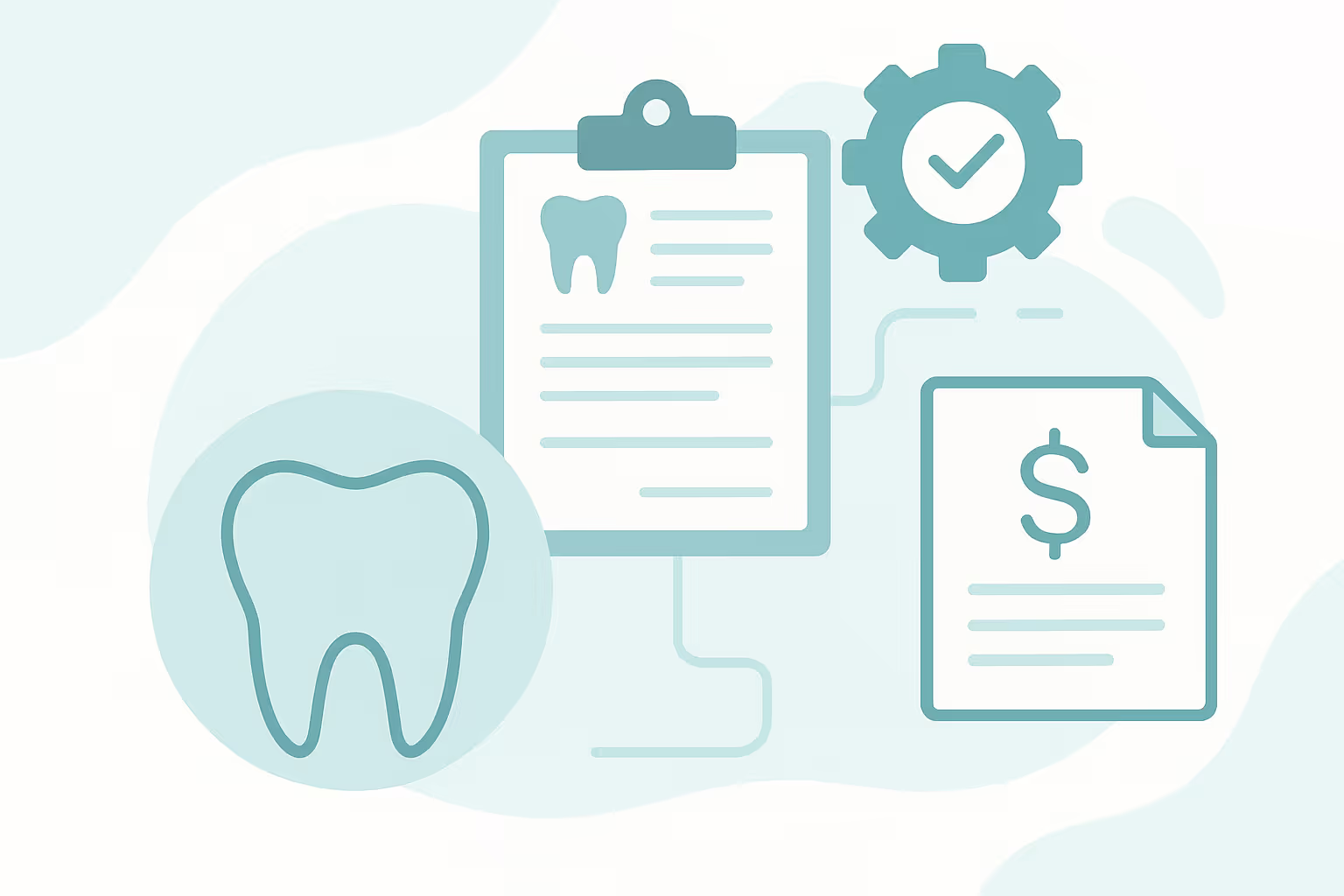Navigating Dental Practice Management Services
What Are Dental Practice Management Services?
Dental practice management services encompass a comprehensive suite of solutions designed to streamline the administrative, financial, and operational aspects of running a dental office. These services go far beyond the capabilities of software platforms, offering hands-on expertise in areas such as dental billing, insurance claims processing, human resources, compliance, and patient communications. The goal is to allow dentists and their teams to focus more on patient care while maintaining a healthy, profitable practice.
Modern dental practice management services address the complexities of today’s dental landscape, from navigating CDT code updates to managing accounts receivable (AR) and ensuring proper claim submission. By leveraging these services, practices can reduce administrative burdens, improve cash flow, and minimize costly errors that impact revenue cycle management (RCM).
In-House Management vs Outsourced Services
One of the most critical decisions for dental practices is whether to manage administrative functions internally or to outsource to specialized dental practice management consultants. Each approach has distinct advantages and challenges.
In-house management offers direct control and immediate access to patient and financial data. However, it requires ongoing investment in staff training, up-to-date knowledge of insurance regulations, and the ability to manage fluctuating workloads—especially during staff absences or turnover.
Outsourced services, on the other hand, provide access to a team of dental billing and management professionals who stay current with industry standards, payer policies, and compliance requirements. Outsourcing can help practices scale efficiently, reduce overhead costs, and benefit from proven workflows for tasks such as insurance verification, claim appeals, and AR follow-up.
Many successful practices adopt a hybrid model, retaining some in-house capabilities while outsourcing specialized or high-volume tasks to maximize efficiency and expertise.
Areas of Practice Management Support (Billing, HR, etc.)
Dental practice management services can be tailored to address specific operational needs. Key areas of support include:
- Dental Billing and Insurance Claims: Accurate claim submission using current CDT codes, timely posting of Explanation of Benefits (EOBs), and proactive AR management are essential for healthy cash flow. Best practices include daily claim batching, electronic submission, and systematic claim follow-up every 14-21 days. Effective services also handle claim denials and appeals, providing detailed documentation and communication with payers.
- Insurance Verification: Verifying patient eligibility and benefits before appointments reduces claim rejections and surprises at checkout. A step-by-step process includes contacting payers, confirming coverage details (annual maximums, frequencies, waiting periods), and documenting findings in the patient’s record.
- Human Resources (HR): From recruiting and onboarding to payroll and compliance, HR support ensures practices attract and retain qualified staff. Outsourced HR services can also help with policy development and regulatory compliance (e.g., OSHA, HIPAA).
- Scheduling and Patient Communication: Efficient appointment scheduling, recall systems, and patient reminders reduce no-shows and improve production. Management services often implement automated tools and proven communication protocols to enhance patient engagement.
- Compliance and Reporting: Staying up to date with dental board regulations, payer contracts, and privacy laws is critical. Professional management support includes regular compliance audits and customized reporting to track key performance indicators (KPIs) such as production, collections, and AR aging.
Selecting a Dental Practice Management Consultant
Choosing the right dental practice management consultant requires careful evaluation of your practice’s unique needs and goals. Consider the following best practices:
- Assess Your Practice’s Pain Points: Identify areas where your team struggles—whether it’s insurance verification, claim follow-up, or HR compliance. Prioritize services that address these gaps.
- Evaluate Experience and Expertise: Look for consultants with a proven track record in dental billing, RCM, and practice operations. Ask for references and case studies demonstrating measurable results.
- Review Service Offerings: Ensure the consultant provides comprehensive support, including billing, AR management, HR, compliance, and technology integration.
- Understand Communication Protocols: Effective consultants maintain clear, consistent communication with your team, providing regular updates and transparent reporting.
- Check for Industry Certifications: Certifications such as AADOM (American Association of Dental Office Management) or Dental Billing Specialist credentials reflect a commitment to ongoing education and industry standards.
Maximizing Efficiency with Professional Guidance
Partnering with a dental practice management service can transform your practice’s operations and financial health. Here are actionable steps to maximize efficiency:
- Implement Standardized Workflows: Adopt step-by-step protocols for insurance verification, claim submission, and AR follow-up. For example, verify insurance at least 48 hours before appointments and batch claims daily for prompt submission.
- Leverage Technology: Use integrated practice management software with electronic claims, automated reminders, and real-time reporting. Professional consultants can help optimize these systems for your workflow.
- Monitor Key Metrics: Track KPIs such as days in AR, claim rejection rates, and patient retention. Regular review of these metrics enables data-driven decision-making and continuous improvement.
- Invest in Training: Ongoing staff training on CDT code updates, payer policies, and best practices ensures your team remains competent and compliant.
- Foster a Culture of Accountability: Set clear expectations, provide regular feedback, and celebrate successes to keep your team motivated and aligned with practice goals.
By embracing professional dental practice management services, practices can reduce administrative stress, improve collections, and deliver a superior patient experience—supporting sustainable growth in a competitive dental landscape.





